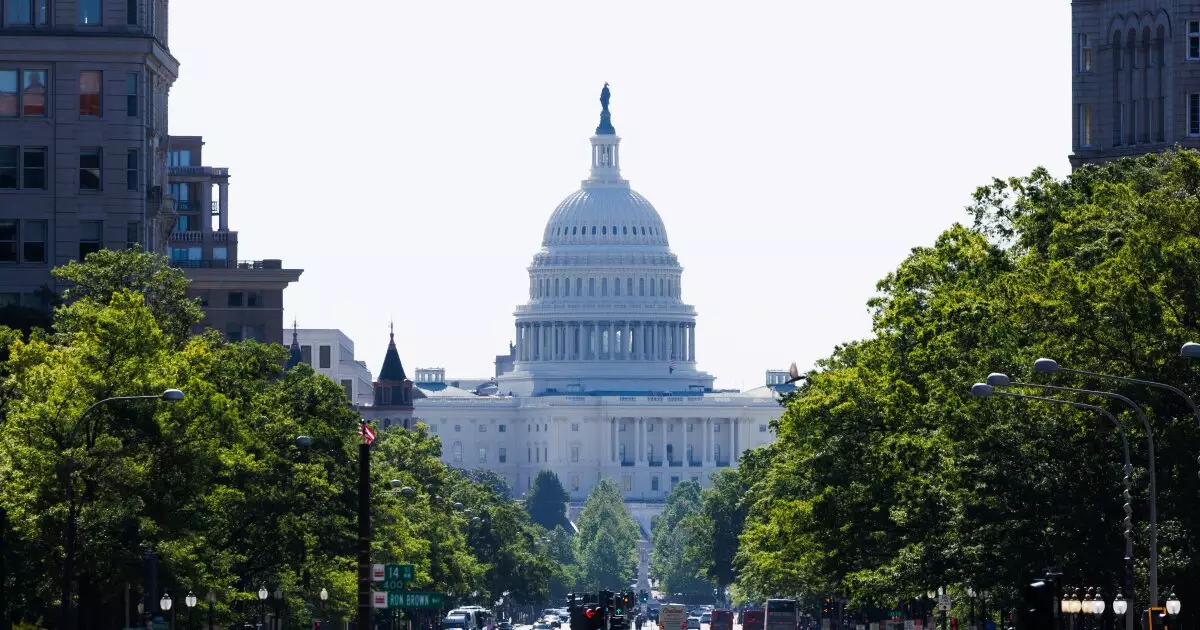In an era marked by fiscal recklessness, the House Ways and Means Committee has positioned itself at a critical crossroads with its preliminary draft of the tax bill, boldly touted as part of their “big beautiful bill.” This isn’t merely a proposal; it’s a declaration that could have profound implications for American taxpayers, our economy, and the political landscape. The draft reveals intentions to solidify portions of the 2017 Tax Cuts and Jobs Act, which many believed were on their way out. While pro-business advocates may relish this move, the overarching reality remains troubling: the bill insinuates a startling addition of $5 trillion to our national debt.
Tax Cuts at What Cost?
The rationale for the proposed tax cuts hinges on the nebulous promise of stimulating economic growth. Rep. Jason Smith of Missouri asserts that these “pro-family, pro-worker tax provisions” are central to the economic vision laid out by former President Trump. However, one must question: at what point do tax cuts morph into mindless deficits? Reports from credible organizations like the Committee for a Responsible Federal Budget indicate that this proposed draft would surpass allowable increases to deficits laid out in previous budget resolutions. With a price tag already ballooning beyond initial estimates, the necessity for offsets or amendments becomes glaringly apparent.
One might argue that an economic system predicated on excessive taxation can stifle growth and innovation. However, will this bill genuinely catalyze the prosperity it promises, or will it merely exacerbate our fiscal malaise? Moreover, dissecting the details further, the draft leaves much to be desired regarding revenue offsets. This absence ignites fears in municipal financing and puts pressure on vital taxpayer protections.
The SALT Dilemma
As the negotiations unfold, the contentious issue of the state and local tax (SALT) deduction cap looms large. The draft’s omission of any mention of this critical cap underscores a significant oversight. Lawmakers from high-tax states are adamant that unless there’s progress towards raising this cap, they will not lend their support to the reconciliation bill. It appears that, yet again, political maneuvering is overshadowing the real grievances of constituents. The SALT Caucus is gearing up to present a united front against the exclusion, highlighting a classic case of regional disparity in tax policy.
Failure to address these concerns could invite backlash not only from constituents but also ignite broader distrust towards governmental intentions. Residents of high-tax states are already feeling the pinch, and neglecting their plight breeds resentment and ultimately alienates those who directly contribute to the tax base.
Deficit Reality Check
The staggering potential increase to federal deficits cannot be ignored. Estimates indicate this bill could add between $1.5 trillion to $2 trillion more to deficits beyond current projections. Rational voters might question the sanity of an economic plan that strains our fiscal resources further while promising to alleviate burdens. The reality is that soaring deficits could compromise not just the economic security of the nation but also our standing on the world stage.
In the wake of Treasury Secretary Scott Bessent’s dire warning about the impending debt ceiling crisis that could occur as early as August, the timeline for enacting such substantial tax cuts takes on a new level of urgency and intimidation. The looming threat of a government unable to meet its financial obligations draws a stark line between ambition and capability.
The Path Forward: Pragmatism Over Partisanship
As the House prepares to debate, the reality is clear: mere partisanship won’t cut it. Lawmakers must embrace a pragmatic approach rather than clinging to ideological positions. If the proposal rests on shaky grounds, it is incumbent upon both parties to fine-tune it, ensuring it places a premium on fiscal responsibility, realistic growth scenarios, and true representational equity.
Navigating these discussions is vital, not only for maintaining the integrity of our tax system but also for fostering public trust in governance. Legislative leaders must recognize that the consequences of inaction—or misguided action—can echo for years to come. In a world fraught with uncertainty, our fiscal policy should embody thoughtful deliberation rather than reckless abandon.

